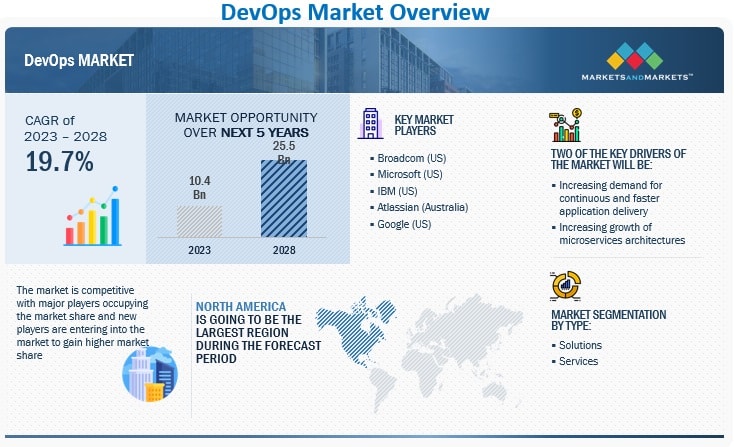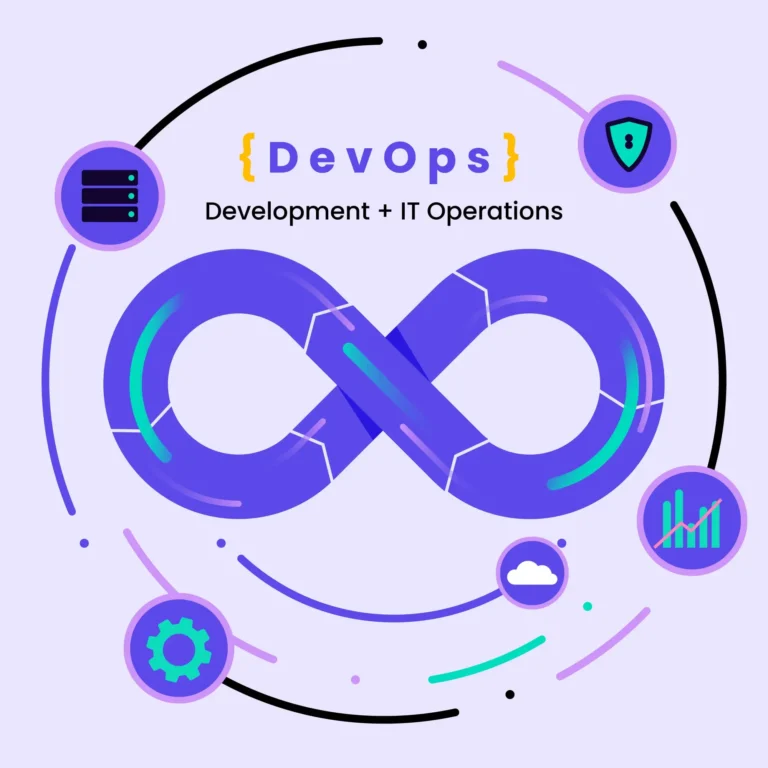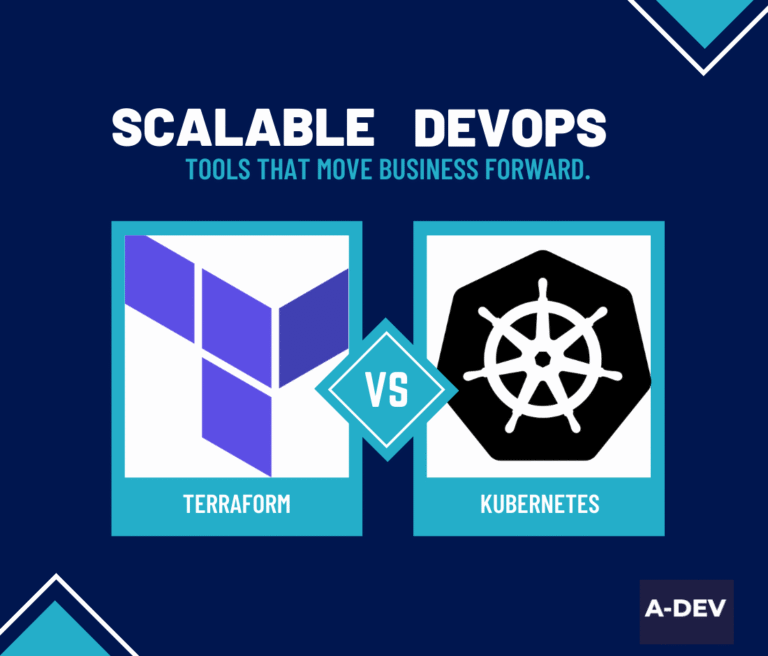The Evolution of DevOps and What a DevOps Engineer Does
In the old days, software development and IT operations were two separate worlds. Developers wrote code while operations teams handled infrastructure, deployments and keeping systems running. The problem? These teams didn’t talk to each other very well, and when you tried to push new software updates, it was a mess.
DevOps changed that. Instead of working in silos, DevOps brings both teams together using automation, collaboration and continuous delivery to speed up software development without sacrificing stability. Companies quickly realized they needed people to bridge this gap and that’s where DevOps engineers come in.
What’s a DevOps Engineer?

A DevOps engineer is like the glue between development and operations. Their job is to ensure that everything from writing code to deploying software runs smoothly and efficiently. They automate, improve workflows, and ensure that software updates roll out fast and don’t break things.
What Do DevOps Engineers Do?
DevOps engineers wear many hats, but their main focus is to make software delivery faster and more reliable. One of the biggest parts of the job is automation. Instead of manually setting up servers or deploying code, they use tools like Terraform and Ansible to do it all automatically. Think of it like setting up a smart home—once everything is configured, the system runs itself.
Another big responsibility is managing CI/CD pipelines. These pipelines help teams test and deploy updates without human error slowing things down. For example with tools like GitHub Actions or Jenkins DevOps engineers can make sure, when a developer pushes new code, it’s tested and deployed in minutes – no waiting around for manual approvals.
Scalability is a big deal. Let’s say an app goes viral and thousands of people start using it at once. A DevOps engineer makes sure the system can handle the traffic spike by setting-up auto-scaling with Kubernetes or cloud platforms. It’s like how Netflix auto-scales its servers when millions people stream shows at night.
Security is part of the job. DevOps engineers build security into the development process instead of treating it as an afterthought. With tools like AWS IAM or HashiCorp Vault, they manage access to sensitive data so only the right people (or systems) can access critical resources.
In the end, DevOps engineers make life easier for developers, with faster software releases and less downtime. They help companies release new features faster, fix bugs quicker and keep customers happy – without the stress of last-minute problems or broken updates.
Key Skills and Responsibilities of a DevOps Engineer
A DevOps engineer ensures software development and IT operations work together. Their main goal is to keep things running smoothly by automating processes, improving workflows and helping teams release software faster with fewer issues. They also reduce bottlenecks in the development cycle so businesses can change quickly and stay competitive.

Technical Skills
Infrastructure Automation & Cloud Computing
A good understanding of cloud platforms and infrastructure automation is key for DevOps engineers. They work with AWS, Google Cloud and Microsoft Azure to set up and manage virtual environments so applications run efficiently. Instead of configuring servers manually, they use tools like Terraform, Ansible or Puppet to automate infrastructure setup—saving time and reducing errors.
Automation and CI/CD
Automation is at the heart of DevOps. Engineers build and manage CI/CD pipelines using tools like Jenkins, GitLab CI/CD or CircleCI so teams can test and deploy updates automatically. This catches bugs early and ensures new features roll out smoothly. A good example is an online store updating its website multiple times a day without downtime—something that’s possible with automated deployment pipelines.
Coding, Scripting and Configuration Management
DevOps engineers write scripts and work with programming languages like Python, Bash or Go to automate tasks and manage infrastructure. They use configuration management tools to keep production environments stable and secure. Instead of logging into each server manually, they apply updates or security patches to hundreds of machines at once.
Monitoring, Security and Troubleshooting
Keeping systems running without hiccups is another big part of the job. DevOps engineers use monitoring tools like Prometheus, Grafana and the ELK Stack to track system performance, detect issues early and prevent downtime. Security is also a priority—they integrate security checks into continuous integration and continuous deployment pipeline and use tools like HashiCorp Vault or AWS IAM to manage access and protect sensitive data.
Soft Skills & Collaboration

Teamwork and Communication
A DevOps engineer isn’t just about tech—they also need strong communication skills. Since they work with developers, IT teams and security specialists they act as a bridge, making sure everyone is on the same page. They use collaboration tools like Slack, Jira and Confluence to coordinate work and keep projects moving.
Problem Solving & Adaptability
Things don’t always go as planned, so being able to troubleshoot and adapt quickly is key. Whether it’s fixing a deployment issue, optimizing cloud resources or handling unexpected traffic spikes, a DevOps engineer needs to think on their feet and find solutions fast.
Different Roles in DevOps
Depending on the company, a DevOps engineer might specialize in:
- Release Manager – Oversees software releases so updates go live without issues.
- Automation Engineer – Builds scripts and automation tools to speed up development and deployment.
- Security Engineer – Implements security best practices, manages vulnerabilities and ensures compliance.
- Infrastructure Engineer – Manages servers, cloud environments and networking to keep systems running efficiently.
By following DevOps best practices, these engineers help businesses build reliable, scalable applications and get software out faster with fewer issues. Their work is key to keeping modern tech companies agile and scalable.
Career Path

Is DevOps a Good Career?
Yes. DevOps is one of the fastest growing fields in tech, with strong career prospects, high demand and getting to work with the latest technologies. Companies need DevOps engineers to bridge the gap between software development and operations, so they are highly sought-after professionals. If you like problem-solving, automation and fast-paced environments this could be the perfect fit for you.
How to Become a DevOps Engineer
There is no single path to becoming a DevOps engineer – people come from different backgrounds, including software development, IT administration and even unrelated fields like mechanical engineering. However, here is a general roadmap to get you started:
1. Build a Strong Technical Foundation
A computer science or software engineering degree can be helpful but not required. Many DevOps professionals are self-taught or transitioned from other fields. If you are new to tech, start by developing fundamental IT skills such as networking, system administration and cloud computing. Understanding how systems interact will help you later when automating workflows and managing infrastructure.
2. Learn Essential DevOps Skills
To succeed in DevOps, you’ll need expertise in the following areas:
- Linux & Shell Scripting: Many DevOps tools run on Linux so learning the basics of shell scripting (like Bash) is essential.
- Programming & Automation: Python, Bash or Go are commonly used to automate processes.
- Version Control: Git, along with platforms like GitHub and GitLab, is a core part of modern software development.
- Infrastructure as Code (IaC): Tools like Terraform, Ansible and CloudFormation help automate infrastructure management.
- CI/CD Pipelines: Jenkins, GitHub Actions and GitLab CI/CD simplify software deployment.
- Cloud Platforms: Familiarity with AWS, Google Cloud and Microsoft Azure is important.
- Containers & Kubernetes: Docker and Kubernetes simplify application deployment and scaling.
- Monitoring & Logging: Tools like Prometheus, Grafana and the ELK Stack (Elasticsearch, Logstash and Kibana) help track system performance.
- Security & Compliance: Understanding security best practices ensures systems are resilient to threats.
3. Get Relevant Certifications
Certifications are not mandatory but can give you an edge in your resume and help you get hired faster. Some well-known options are:
| Certification | Provider | Focus Area |
|---|---|---|
| AWS Certified DevOps Engineer – Professional | AWS | Cloud and DevOps automation |
| Microsoft Certified: DevOps Engineer Expert | Microsoft | Azure DevOps practices
|
| Google Professional Cloud DevOps Engineer | Google Cloud | Cloud-based DevOps |
| Certified Kubernetes Administrator (CKA) | CNCF | Kubernetes deployment & management |
| Red Hat Certified Engineer (RHCE) | Red Hat | Linux-based automation |
These certifications prove your knowledge of cloud environments, automation and container orchestration – skills needed in modern DevOps roles.
4. Get Hands-On Experience
The best way to learn DevOps is by working on real projects. Here’s how you can build practical experience:
- Contribute to open-source projects on GitHub—this helps you collaborate with others and work on real-world problems.
- Create your own cloud-based projects, such as deploying a website or setting up a CI/CD pipeline.
- Experiment with automation tools like Terraform, Ansible and Jenkins to practice Infrastructure as Code and deployment automation.
- Build and manage containerized applications using Docker and Kubernetes.
Employers value practical skills over theory, so don’t just study—apply what you learn.
5. Join DevOps Communities
Networking can open doors to job opportunities and industry insights. Get involved by:
- Participating in LinkedIn DevOps groups to stay updated on industry trends.
- Engaging in discussions on Reddit (r/devops) and DevOps Stack Exchange to learn from experienced professionals.
- Attending meetups and conferences like KubeCon, and AWS re: Invent and DevOpsDays to connect with others in the field.
Being active in the DevOps community helps you learn faster and get exposure to new tools and best practices.
How Long Does It Take to Become a DevOps Engineer?
Timeframe depends on your background, experience and learning pace:
| Starting Point | Estimated Timeframe |
|---|---|
| IT professionals (SysAdmins, Developers) | 6–12 months |
| New to tech (no prior IT experience) | 12–24 months |
Factors that impact your learning speed:
- Previous experience: If you have a background in IT, networking or development, you’ll have an advantage.
- Learning approach: A structured learning plan, such as following online courses and projects, helps accelerate progress.
- Hands-on practice: The more real-world projects you work on, the faster you’ll build confidence and skills.Whatever your starting point.
Industry Demand and Outlook
The DevOps Job Market: What’s Going On?

DevOps engineers are in high demand and that demand is only increasing. The DevOps market was $10.4 billion in 2023 and will be $25.5 billion by 2028 growing at 20% per year. Why? Companies need faster software development, smoother deployments and better collaboration between dev and ops teams. Traditional IT models are too slow and companies are moving to DevOps principles to speed up.
But being a DevOps engineer isn’t just about writing automation scripts or managing infrastructure provisioning. It’s about making sure software gets built, tested and deployed bottleneck free. It’s about keeping software applications running in production infrastructure, improving performance monitoring and helping teams ship updates faster and more secure. A good DevOps engineer’s role is to bridge the gap between software developers and IT ops teams, bringing in continuous integration, automation processes and DevOps toolchains to make everything tick.
It’s not easy. Many companies still have company silos, outdated traditional configuration management tools and no DevOps culture. That’s why skilled DevOps engineers play such a big role in modernizing dev teams and bringing in popular DevOps tools like Kubernetes, Terraform and AWS CloudFormation.
If you can troubleshoot, fine tune performance monitoring and lead cross functional teams you won’t have trouble finding work. DevOps is growing fast and companies need people who can fix problems, automate system admin tasks and streamline the software delivery lifecycle. The opportunities are there—you just have to be ready to grab them.
What’s Next for DevOps?
The DevOps engineering field is evolving fast, here are the trends to watch:
1. AI and Machine Learning: Automating the Boring Work
AI is revolutionizing DevOps software development by automating system administration tasks and predicting system failures before they happen. Artificial intelligence and machine learning are now helping with integration testing, automated test suites and quality assurance, reducing human error and improving efficiency.
For example, Google’s AI-driven DevOps approach helps companies detect anomalies in their production infrastructure, while AI-powered code reviews ensure application software is secure and optimized. Engineers who understand automation processes and AI-driven testing methodologies will be ahead of the curve.
2. Cloud and Containers: The New Normal
Cloud-native technologies are changing DevOps engineering. Companies are using Google Cloud Platform, AWS and Azure for infrastructure provisioning and Kubernetes for containerization and application deployment.DevOps engineers need to be proficient in virtual instances, storage devices and network resources as businesses move away from physical servers to fully automated cloud environments. Knowledge of AWS CloudFormation, Terraform and Helm will be a big plus in this space.
3. Full Automation: Reducing Manual Work
Automation skills are more important than ever. Continuous delivery (CI/CD) is now a requirement, companies are investing in automated testing, regression testing and smoke testing to not break existing functionality.
By using DevOps toolchains like Jenkins, GitHub Actions and GitLab CI/CD engineers can build robust continuous deployment pipelines that reduce downtime and improve software development life cycle efficiency. The more you can automate system administration tasks the better.
4. Security: DevSecOps is No Longer Optional

Cybersecurity threats are on the rise and DevOps engineers work closely with security teams to ensure safe software code deployments. DevSecOps integrates security into every stage of the DevOps life cycle from source control to runtime environment security monitoring.
A DevOps engineer’s responsibility now includes implementing automated security patches, configuring version control systems and performing penetration testing to identify vulnerabilities. Security expertise is fast becoming a core skill in DevOps careers.
5. Breaking Down Silos: DevOps Engineers as Leaders
Successful DevOps engineers play a crucial role in cross-functional teams, ensuring operations staff, software developers and project managers work together. DevOps culture is all about effective collaboration which means strong interpersonal skills, project management abilities and a deep understanding of business processes.
Beyond technical skills, companies are looking for DevOps engineers who can oversight code releases, optimize development tasks and ensure seamless communication through messaging tools like Slack and Microsoft Teams. Team structure and management skills are just as important as knowing how to configure Kubernetes clusters.
Bottom Line
You’re a DevOps engineer, now is the time to level up. Master infrastructure provisioning, process automation and DevOps toolchains and you’ll be future-proof. Whether you’re just starting your DevOps career or looking to upskill the key is to deliver continuously, adapt to new tech and get hands-on with popular DevOps tools.
Want to be competitive? Learn new skills, hone your troubleshooting skills and get used to the evolving DevOps life cycle. DevOps engineering is about automation, security and leadership — so build, break and optimize.






